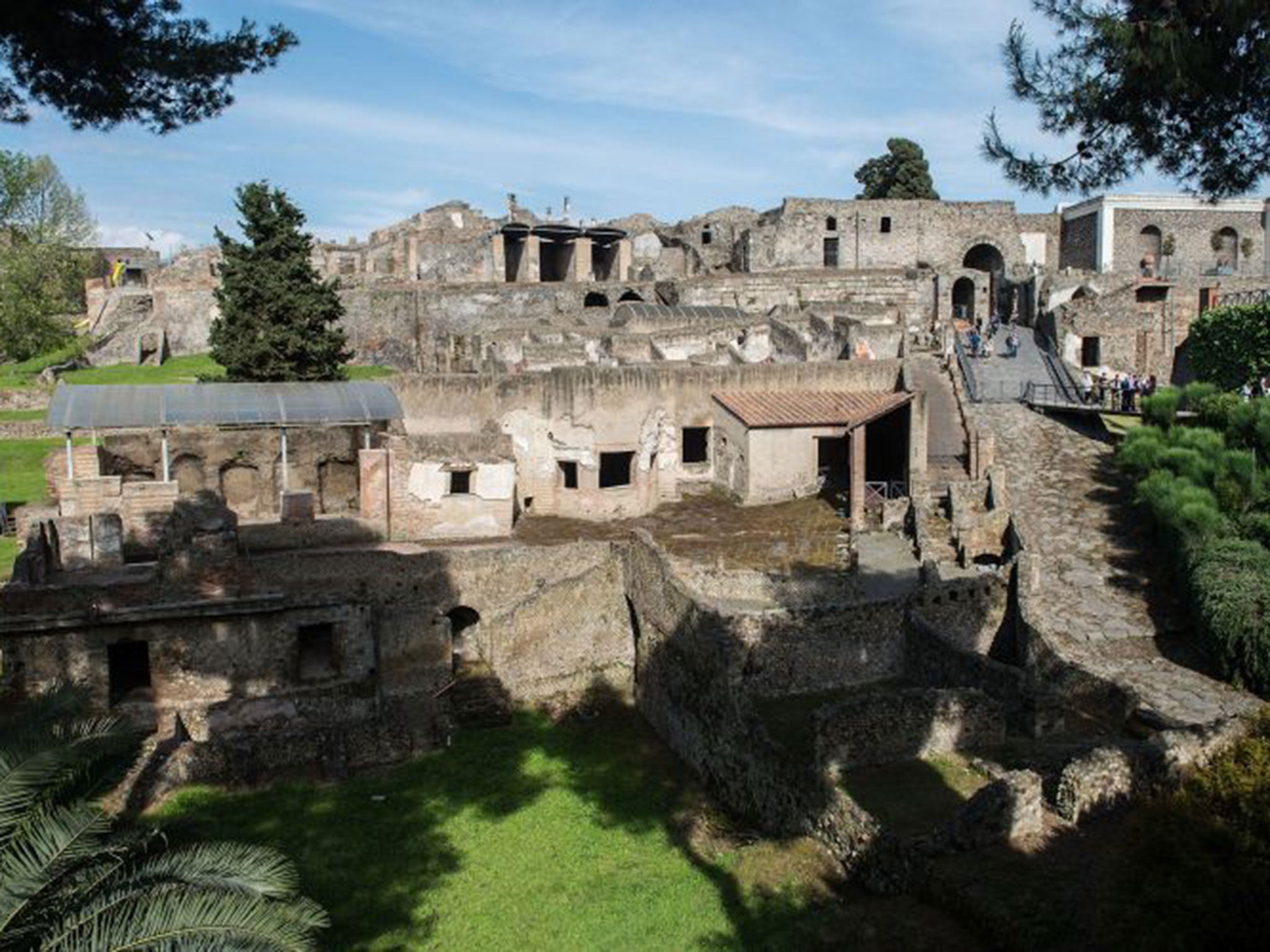Pompeii recruits army of spies to root out Mafia corruption and shoddy renovation work at the ancient site
Criminals are keen to get their hands on some of the €100m being spent on saving and restoring the Roman ruins

Pompeii’s heyday may be long gone, but the intrigue and corruption that marked life in ancient Rome’s top people’s resort have not entirely vanished.
Before the city was buried under 20 feet of volcanic ash, espionage, back-stabbing and murder were par for the course. Now, two millennia later, an army of spies has been recruited to work among the ruins in what is being called “Operation Deep Throat”. The whistleblowers’ is job to look out for dodgy dealings involving routine criminals as well as the local Camorra Mafia, which is keen to get its hands on some of the €100m (£78m) being poured into the ancient site in a bid to save it from permanent collapse.
Mobsters are all too happy to sell low-grade cement and carry out cheap and dodgy repairs – activities that have already put some parts of Pompeii at risk. Luigi Curatoli, the director general of the ongoing Great Pompeii Project, said he was confident that the new operation would prove effective in protecting the site’s finances.
“Obviously we always hope that no criminal offences occur. But if they are discovered, thanks to this system of whistleblowers we’ll be able to respond swiftly,” he told Naples’ Il Mattino newspaper. The need to root out corruption has become a priority, given the huge sums being spent on saving and restoring ancient Pompeii.
Something approaching financial salvation for the site appeared in April 2012 with the inauguration of the Grand Pompeii Project. This saw the European Union promising to stump up nearly €75m, with the Italian government contributing another €30m.
Staff shortages and administrative problems meant Pompeii was unable to spend the EU’s €75m by the December 2015 deadline for the project, which has been extended for another year. But there were already concerns about how the millions were being spent.
In 2013, as work began, police in Campania, the southern region in which Pompeii is situated, arrested the head of one restoration contractor previously involved at the site and probed the activities of four senior officials, whom they suspect of paying inflated prices for restoration work on Pompeii’s Teatro Grande.
Pompeii: Life and death in the shadow of Vesuvius
Show all 10Engineers employed at the site had previously been blacklisted from their profession, it emerged, and materials of suspect quality were used in the ancient building’s reconstruction.
But something more worrying lurks in the shadows – the Camorra Mafia. Just 15 miles away lies the southern port of Naples, the crime group’s home base, where it has a hand in everything from drugs and construction projects to rubbish collection
In April 2013, a small army of carabinieri officers, finance police and officials led by Mariolina Goglia, the head of the Naples prefecture anti-Mafia unit, marched into the Pompeii site in the hunt for evidence of Camorra activity – with one eye, no doubt, on watching EU benefactors.
There are signs that Pompeii is on the up, however. In the past few months six ancient residences, or domus, at the site have reopened to visitors following restoration – it was this sort of progress which helped persuade EU authorities to extend the deadline. The restored houses opened at the end of December and are attracting large crowds.
In addition to repairing individual houses, the top priority is the installation of a new drainage system. Heavy rainfall, if not removed, is absorbed by unexcavated sections of the site. In 2010 this caused a large building to collapse on Via dell’Abbondanza. Pompeii’s main street.
Subscribe to Independent Premium to bookmark this article
Want to bookmark your favourite articles and stories to read or reference later? Start your Independent Premium subscription today.

Join our commenting forum
Join thought-provoking conversations, follow other Independent readers and see their replies